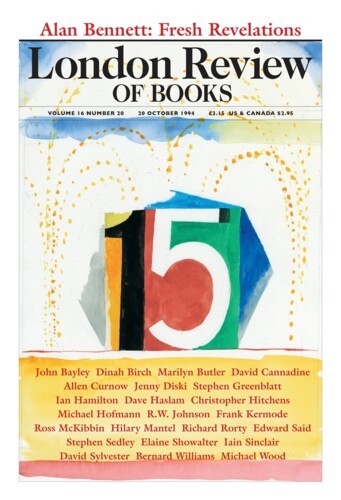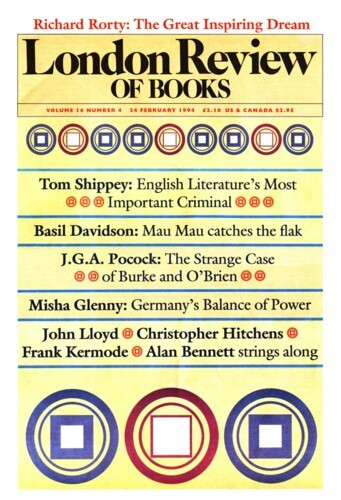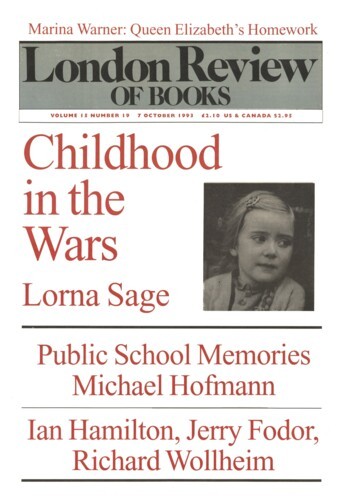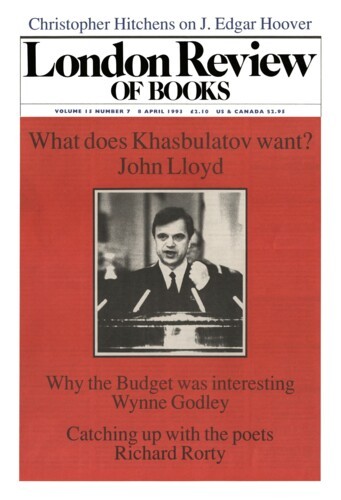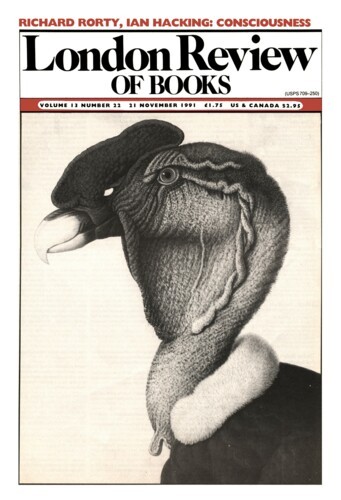A Leg-Up for Oliver North
Richard Rorty, 20 October 1994
In his new book, Richard Bernstein – one of the best reporters at the New York Times – offers some detailed descriptions, and some solid criticisms, of a serious nuisance. Unfortunately, he then tries to inflate this nuisance into a dangerous monster. He offers a lot of useful information about what one segment of the American Left has been doing recently, and his analyses are very acute. But, as his overblown subtitle indicates, he tries to give more importance to his subject than it has.
